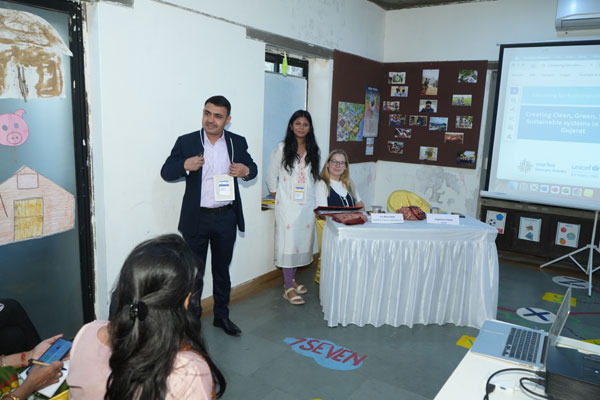The session aimed to explore how technology can support environmental education, reduce the carbon footprint of schools, and cultivate sustainability mindsets in students. Key objectives included showcasing new technologies that facilitate greener teaching methods and learning environments, exploring how digital tools and platforms can advance sustainability education, identifying challenges and opportunities for integrating green technologies into formal education systems, and encouraging collaboration and innovation in green teaching practices.

Speakers
Ms Gayatri Raghwa,
Environmental Educator, Former UNEP Advisor, Delhi, India
Mr Nageshwar Patidar,
WASH Specialist, UNICEF Gujarat, Gandhinagar, Gujarat

Ms Kay Marie Ochel,
Research Scholar, Association of Hesse eV (ANU Hessen eV), Germany